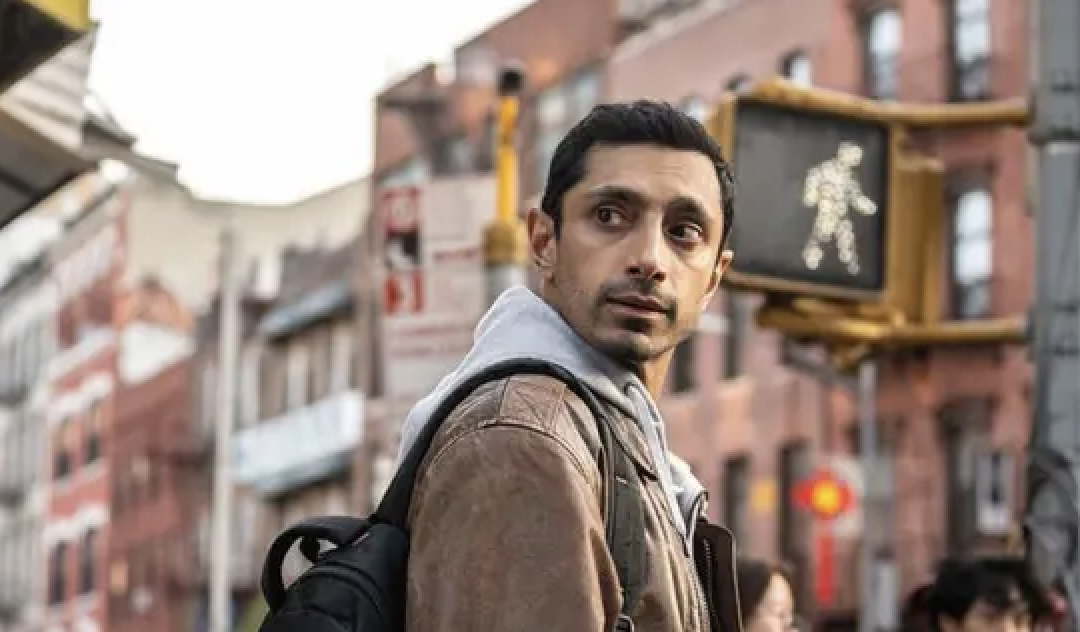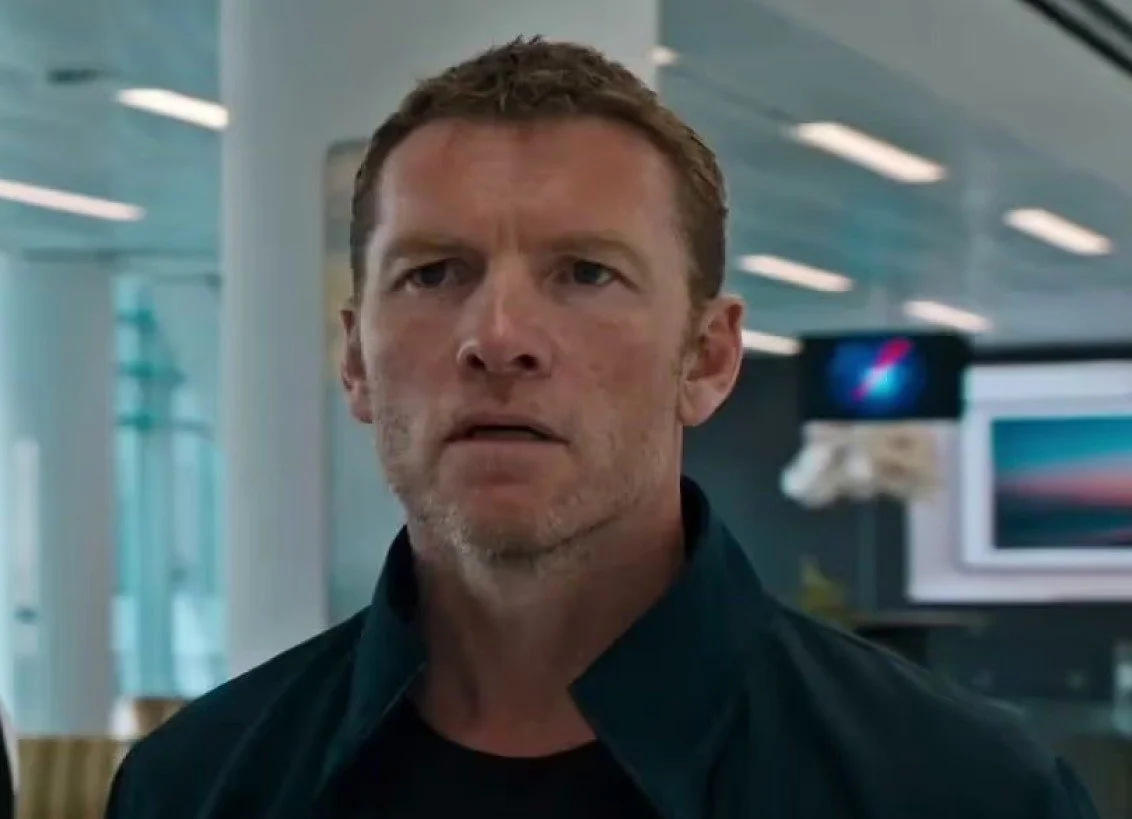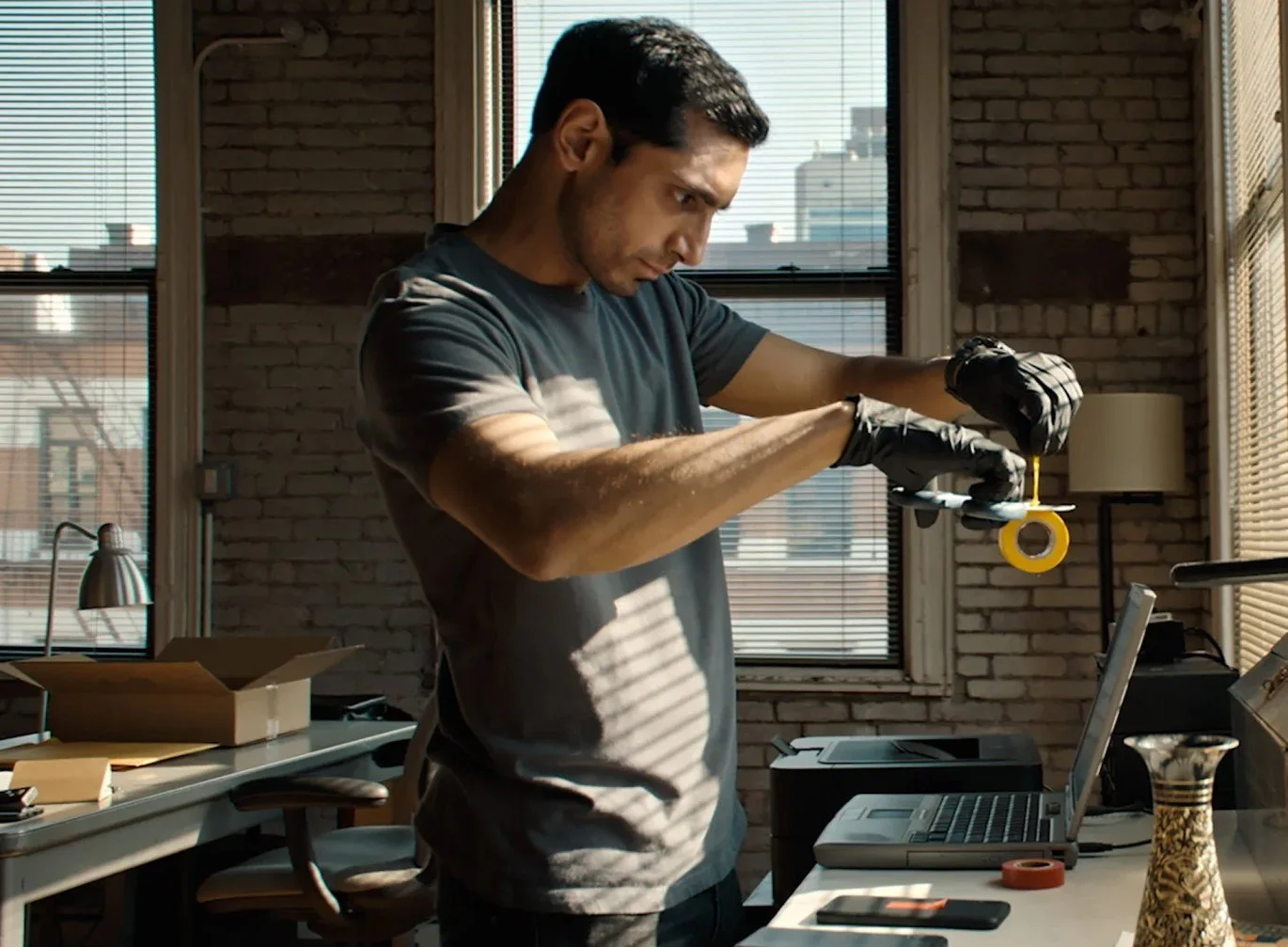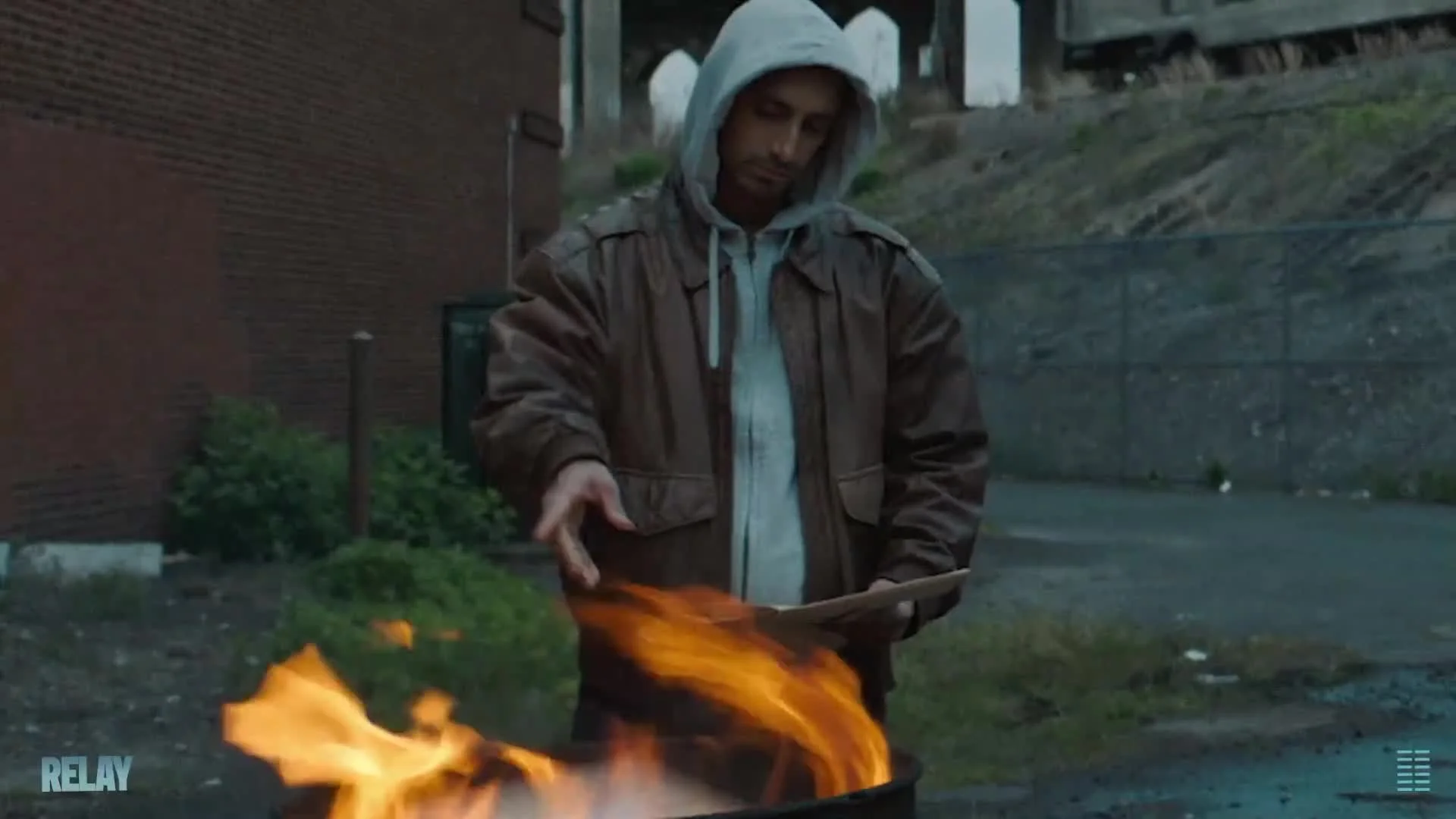Directed by: David Mackenzie
Written by: Justin Piasecki
Starring: Riz Ahmed, Lily James, Matthew Maher, Eisa Davis, and Sam Worthington
Runtime: 112 minutes
‘Relay’ translates into a compelling small-scale thriller in a massive and crowded New York City
“This is the Tri-State Relay Service.”
A relay service is a communication program for the deaf and non-speaking communities. The service provides a method for the aforementioned persons to receive and send phone calls. An individual machine – that can sit in a home or business – has a small keyboard and an analog display that reveals the conversation between two parties.
If one relay user wishes to converse with a hearing or speaking individual, a liaison, who acts like an old-fashioned operator, calls that person, manually voices the message, and can “relay” a typed memo back to the originator.
In a 21st-century world of the Internet, YouTube, and smartphones, the text telephone was invented in 1964. The first relay service was established during the 1970s.
This valuable 20th-century innovation plays an enormous role in director David Mackenzie’s (“Hell or High Water” (2016)) “Relay”, obviously, since the technology is the name of his compelling small-scale thriller in the massive metropolis of New York City.
During the first act, Sarah Grant (Lily James), a bright, young executive, meets with a lawyer. Sarah is desperate and explains that she stole company documents that prove that their bioengineered foods would or could harm humans who consume them. The attorney initially believes that she is a whistleblower, but she insists that she wants to avoid trouble and return the documents.
Return the documents?!!?
Who can she turn to?
The barrister knows someone.
“I’ve never met him. That’s kind of the point.”
Ash (Riz Ahmed) is that person. Through especially covert means, Ash is a fixer. With intricate planning and espionage-level gadgets, Ash can bring two parties together for an agreement, where crucial information can be exchanged without harm to someone like Sarah.
Ahmed was mesmerizing as a rock drummer who loses his hearing in the deeply affecting “Sound of Metal” (2019), but Ash is not deaf when frequently relying on the relay machine and service in “Relay”.
However, one might question Ash’s hearing or speech state. Unless this critic missed it (which is entirely possible), Ash doesn’t speak for the first 28 minutes (or thereabouts) of Mackenzie’s film. Instead, we see this silent operative work with his first on-screen client, Hoffman (Matthew Maher), and plan his safe getaway after returning documents to a pharmaceutical CEO (Victor Garber) in a modest NYC establishment. Ash keeps a copy of the company’s returned records under lock and key as a safeguard for Hoffman’s protection.
“If anything should happen to me, then….”
Since Ash doesn’t utter a word (or much of one, if again, this critic missed it) for the first half-hour, you might be glued to the screen watching our lead’s every meticulous step. He works alone, like a private detective but with spy-like skills, and his mind seems to be playing a dozen matches of chess simultaneously while operating – on the outside - with the cool efficiency of a cyborg cruising on autopilot.
Ash uses relay as a prime method of communicating with his clients to preserve his anonymity when tendering sensitive negotiations and high stakes. Relay is dependable, safe, and used throughout the film as engaging cinematic exchanges between Ash and his clients and interested third parties. However, for most of the film, his attention and work are squarely focused on Sarah, who badly needs his help.
Ash is constantly communicating with Sarah and three reps from her previous employer, the biotech company. However, Dawson (Sam Worthington) and his two associates aren’t long-time white-collar executives who belong to country clubs or own second homes in The Hamptons. They are hired guns, the muscle to reacquire the valuable research that Sarah pocketed, and if they scare (or possibly harm) her, well – in Dawson’s mind – that’s life in the big city.
Worthington doesn’t play Dawson as a cartoonish heavy but rather a determined, informed villain who doesn’t use violence (at least initially) but seems awfully capable of taking extreme measures. Dawson and his stooges face off – from a distance – with Ash and Sarah.
Sarah is attractive, naive, and frightened, and even though the two don’t meet in person quite yet, Ash sees photos of her online, and through their conversations, she develops into a damsel in distress for Ash. She’s more than just a benign customer in his world.
Justin Piasecki’s screenplay reveals Ash’s vulnerabilities through two confidential group settings and another moment in a local pub. He’s a loner in both his personal and work life, so these two small assembly scenes dictate his only real connections.
Hence, when this lonely heart begins to connect with Sarah, we entirely believe it.
“Relay” also connects with the setting. New York City’s streets are bustling. People from all walks of life are walking everywhere. Corporate offices stand alongside modest, moody speakeasies, late-night Asian cuisine spots, and crowded convenience stores.
Even though Ash wishes to be faceless and nameless in his work, he freely moves about The Big Apple without concern and becomes “lost” in a sea of people and concrete. Mackenzie and cinematographer Giles Nuttgens film on location and use the crowded urban environment as another character, and often use random individuals looking at (or approaching) Ash, Sarah, or even Hoffman as immediate or potential threats, and these moments swell our anxiety.
Danger could come from anywhere, and we feel the concern for Sarah’s and Ash’s safety. Thankfully, this job is not Ash’s first rodeo, but when the heart is potentially in play, working with Sarah places him in a hazardous arena for the first time; this helps translate “Relay” into a clever and stressful experience.
Jeff’s ranking
3/4 stars















